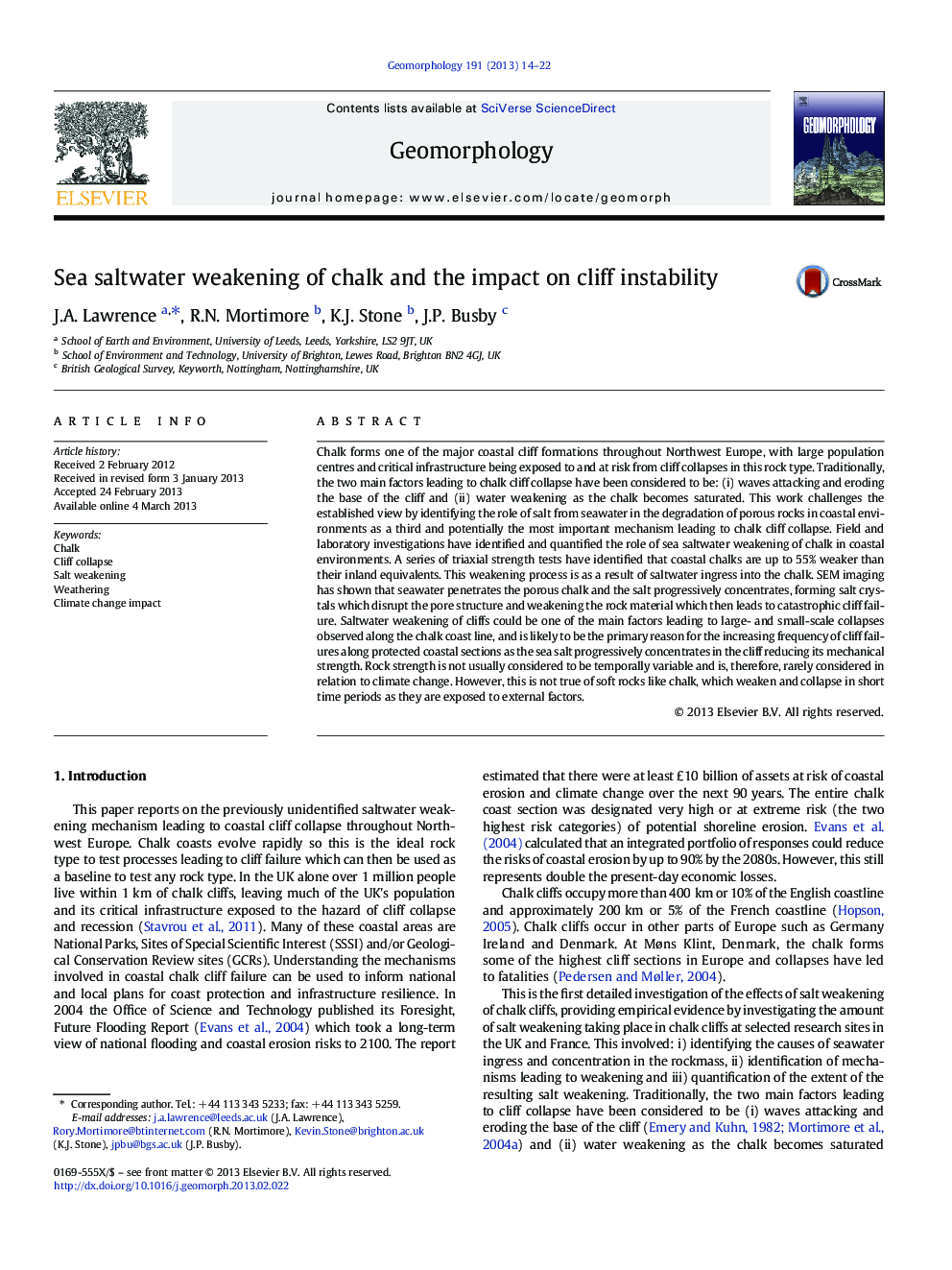| کد مقاله | کد نشریه | سال انتشار | مقاله انگلیسی | نسخه تمام متن |
|---|---|---|---|---|
| 4684808 | 1635458 | 2013 | 9 صفحه PDF | دانلود رایگان |
• This work identified salt from seawater as the cause of weakening coastal chalk.
• Seawater saturated chalk loses up to 55% of its strength.
• Combined wettability and seawater weakening reduces the strength of chalk by 75–80%.
• SEM imaging identified salt crystals mechanically weakening the chalk.
Chalk forms one of the major coastal cliff formations throughout Northwest Europe, with large population centres and critical infrastructure being exposed to and at risk from cliff collapses in this rock type. Traditionally, the two main factors leading to chalk cliff collapse have been considered to be: (i) waves attacking and eroding the base of the cliff and (ii) water weakening as the chalk becomes saturated. This work challenges the established view by identifying the role of salt from seawater in the degradation of porous rocks in coastal environments as a third and potentially the most important mechanism leading to chalk cliff collapse. Field and laboratory investigations have identified and quantified the role of sea saltwater weakening of chalk in coastal environments. A series of triaxial strength tests have identified that coastal chalks are up to 55% weaker than their inland equivalents. This weakening process is as a result of saltwater ingress into the chalk. SEM imaging has shown that seawater penetrates the porous chalk and the salt progressively concentrates, forming salt crystals which disrupt the pore structure and weakening the rock material which then leads to catastrophic cliff failure. Saltwater weakening of cliffs could be one of the main factors leading to large- and small-scale collapses observed along the chalk coast line, and is likely to be the primary reason for the increasing frequency of cliff failures along protected coastal sections as the sea salt progressively concentrates in the cliff reducing its mechanical strength. Rock strength is not usually considered to be temporally variable and is, therefore, rarely considered in relation to climate change. However, this is not true of soft rocks like chalk, which weaken and collapse in short time periods as they are exposed to external factors.
Journal: Geomorphology - Volume 191, 1 June 2013, Pages 14–22
